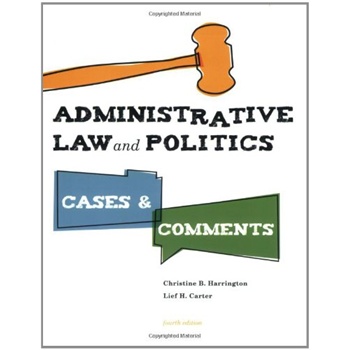Bioethics Challenge
Name
Institution
Bioethics Challenge
Response to Cases
Response to Cases代写 Case 1: State of Tennessee Department of Human Services v. Mary C. Northern.Case 2: Elizabeth Bouvia v. Superior Court.
Case 1: State of Tennessee Department of Human Services v. Mary C. Northern
The case concerns an elderly adult Ms. Northern who is 72 years old, living alone and suffering from gangrene on her both legs rendering her unable to walk. (State v. Northern, 1978). She had been admitted to the Nashville General Hospital. The condition had worsened to the extent that the doctors prescribed amputation of her both legs to reduce the spread of damaged tissues to the other organs. This decision by the doctors was meant to save her life which according to the doctors if she does not undergo surgery, the condition will accelerate her death.
On the other hand Response to Cases代写
Ms. Nothern refused to consent for the amputation regardless of the facts given by the physicians. In this regard, the physicians filed a suit alleging Ms. Northern has refused to take the only surgery which would extend her life and therefore seek the court to compel her into submission of the surgery. In accordance to the Rule 4.04 (2) T.R.C.P, the guardian found Ms. Northern although suffering from gangrene she believed in her recovery. She had a good memory and was sane, as well as was aware of the complaint filed against her and not ready to lose her legs.
Question Response to Cases代写
The question for this case was whether Ms. Northern right to made her own decision regarding her health was admissible or not and whether the physicians were ethically and legally qualified to deny her wish. The facts given by the doctor were convincing on the lurking risk to her life and her incapacity to make a decision. Further, although she needed to have her legs not amputated in total disregards of the medical facts or so to say, apparently she was not willing to die.
She was declared to be suffering from the psychotic mechanism of denial and thus was partially insane and could not be trusted to make any rational decision upon her right to health and life. However, following the facts and the provision of the federal law, if Ms. Northern were able to appreciate the seriousness of her condition and were able to choose between the surgery or risking to have her legs, the physicians would have granted her decision.
Fundamentally, the court was guided by the right of a patient to decide on the fate of her health and life in as much as he/she is sane. Response to Cases代写
In this case, Ms. Northern was declared partially insane and at the imminent danger of death. As such ethically, the physicians had to do what it takes to compel the consent to surgery which aimed at reducing the risk of death. Although the surgery was not any better because it had its risks. It would have prolonged her life by 50 percent compared to less than 10 percent if she fails to undergo surgery. Therefore, the court ordered her to be compelled to consent for the amputation although it was never conducted because of anticipated surgery risks.

Case 2: Elizabeth Bouvia v. Superior Court Response to Cases代写
The case was interesting because the court and physicians applied double standards in making their decision taking case 1 as the precedent.
The case was ethically right but legally wrong. The case involved Elizabeth Bouvia who was quadriplegia (Bouvia v. Superior Court, 1986). She has been paralyzed since childhood, and her condition had worsened to being depended on everything including toileting, eating, bathing and more. Her disability made her life miserable because the condition was permanent and it would persist for the rest of her life. To her that life was unbearable, and therefore she tried in vain to die and always wished to when she procures a suicide form a hospital which was denied.
Determined, she seeks legal assistance to compel the hospital to act on her request which was denied. The case that was brought forward by Mrs. Bouvia is to have her decision heard by requesting the removal of the nasogastric tube which assisted her in feeding and which she claims was inserted out of her will. As provided by the law, a patient has a legal right to refuse any medical treated accorded to him/her regardless of the need for such treatment or the severity of the health condition.
This rule was not applied to the Mrs. Bouvia irrespective of her being of sound mind and competent enough to make such judgment. Ethically she was denied the right to suicide although logically it is evident in the writing her life was miserable and not worth the pain for more than 20 years. Weighing at available options, she was generally entitled to her decision to preserve the human dignity for not to suffer the rest of life but rather to die.
The case of Elizabeth Bouvia epitomizes the prejudice and biases that pervade the judicial system against the disabled persons.
The injustice to Ms. Bouvia is a perennial discord and bigotry that have persisted the community towards people of her kind. They were social, politically, and economically segregated because they were perceived unproductive in society.
Comparison of the Two Cases Response to Cases代写
The two cases are similar in argument but not regarding logic and judgment applied to the ethics and legal aspects therein. The case for Ms. Northern was vested in the severity of the diseases and the inability to make a sound decision. Logically, the physicians could have granted her decision if she could have understood the severity of her condition and be able to make a rational decision out of the facts. The physicians to save her life was ethical while the court decision was legal to compel her consent.
On the other hand, depriving Ms. Bouvia of the right to deny treatment and forced feeding was wrong and prejudicial (Longmore, Bouvia, 1987). Although ethically the medics were right, the court was legal system was biased. This is supported by her ability to make a sound decision in deciding her destiny and the precedents cited in the article argument.

References Response to Cases代写
Longmore, K. P., Bouvia, E. (1987). Assisted suicide and social prejudice (PDF). L. & Med. 141(3), 453-457
Bouvia v. Superior Court, 225 Cal. Rptr 297 (Cal. St. App. 1986) (edited version) (PDF).
State v. Northern, 573 S.W.2d 197 (Ct. App., Middle Sec. Tenn. 1978) (PDF)
更多其他:Case study代写 研究论文代写 数据分析代写 商科论文代写 Review代写 Report代写 Proposal代写 Capstone Projects 文学论文代写 论文代写 Essay代写 Academic代写



您必须登录才能发表评论。